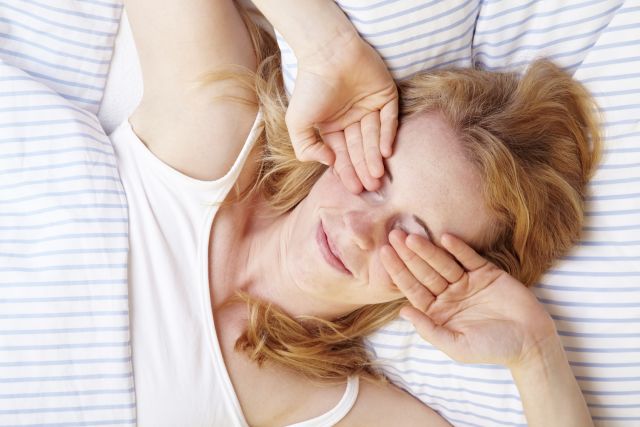Updated on October 2, 2024.
Ever wonder why it’s a struggle to fall asleep during the daytime even if you were up all night working? The answer lies in your circadian rhythms, also known as your body's internal clock.
It’s not simply how long you’ve been awake or how much you’ve exerted yourself that determines if you're able to fall—and stay—asleep. Your circadian rhythm not only governs when you feel sleepy or alert. It also influences hormone and hunger levels and your body’s temperature. People who work the night shift can find their circadian rhythms askew, leading to serious health problems and difficulty getting rest.
How circadian rhythms work
The suprachiasmatic nucleus (SCN) is a specialized part of your brain that sends signals to control your body’s functions. Normally, SCN sends the signals that cause your body temperature to drop in the hours before sleep and rise in the hours just before you begin to wake up. The SCN also signals your brain to produce melatonin, a sleep-inducing hormone, before bedtime.
Light is the trigger that lets SCN know it’s time to begin sending signals for you to wake up. This is why night shift work is so incompatible with sleeping well: Night shift workers work when their body is signaling for sleep and rest while their brains are alert and wakeful. This leads to disrupted, fragmented sleep.
What happens when circadian rhythms are disrupted
Disruptions to circadian rhythms unsurprisingly lead to sleep disorders, such as insomnia and general fatigue. Night shift workers struggle to get enough sleep, and often wake up more frequently than they would if they were sleeping at night.
A lack of sleep has a deep impact on your mood; you may find yourself irritable and quick-tempered. It can also lead to poor performance on the job and accidents caused by a lack of alertness (as well as drowsy driving accidents on the way home from a shift). These circadian rhythm disruptions are also contributing factors in many diseases and conditions, including heart disease, gastrointestinal issues, obesity, depression, and cancer.
Best tactics for night shift workers
Although you’re working against your natural circadian rhythms when you work at night and try to sleep during the day, there are steps you can take to help them adjust so you can get asleep and stay asleep.
Use caffeine strategically
Caffeine is a good tool to help overpower your body’s natural circadian rhythms. One study found that caffeine may delay the circadian melatonin rhythm by around 40 minutes. Drink coffee or other caffeinated beverages early in your shift to send your body the signal to be alert. Just be careful to avoid caffeine in the later hours of your shift, since that can cause difficulty getting to sleep when you get home.
Maintain your schedule on days off
Consistency is important. Too often, during a weekend off, shift workers adjust back to the more natural pattern of nighttime rest and daytime activities. Strive to keep yourself on a similar schedule. At the very least, aim to wake up and go to bed as late as possible, so that you’re only a few hours off, rather than an entire shift off.
If possible, schedule shifts for a clockwise start
It’s easier for those working rotating shifts to adjust to a schedule that rotates clockwise. That means it’s best to go from a day shift, to an evening shift, to a night shift.
Use light in your favor
Make sure your bedroom has as little light as possible. Consider getting blackout curtains to cut down on sunlight seeping through. On the way home from work, wear sunglasses to avoid sunlight and its wake-up trigger. Use bright lights when you first wake up to heighten your alertness and increase the daytime feel.
Take naps
Take a pre-shift nap and during breaks, if your workplace permits it. Just be careful to give yourself enough time after your on-shift nap to fully wake up, so that you’re alert while on the job.
Practice good sleep hygiene
In addition to using blackout curtains, run a white noise machine to drown out household or outside noise. Have a bedtime wind-down routine that sets you up for a good night’s sleep, and keep electronics (phones, laptops, televisions) out of the bedroom.







